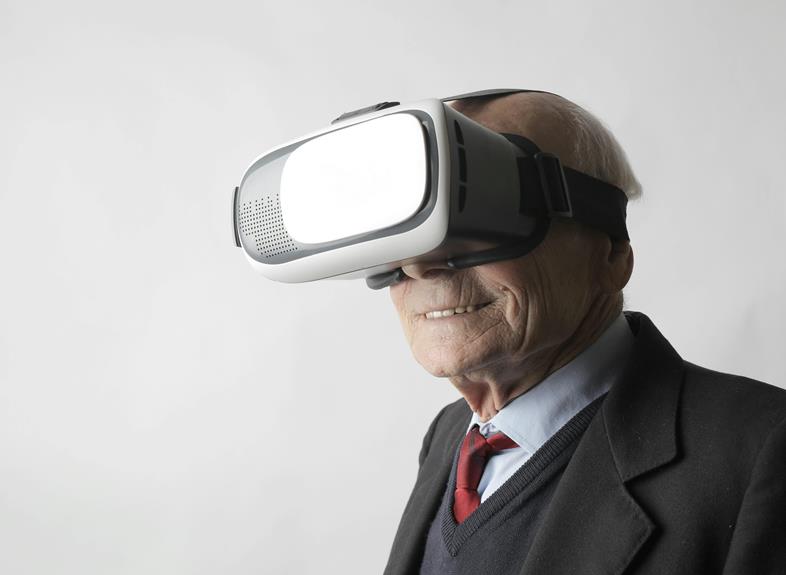
Experience a new era of virtual reality headsets with cutting-edge technologies like enhanced display clarity, advanced movement tracking, improved comfort features, and seamless integration of augmented reality, shaping the latest trends that redefine immersive experiences. Dive into the world of VR headsets and discover how these innovations are transforming the way you interact with virtual environments.
Enhanced Display Technology
Enhanced display technology in virtual reality headsets brings vivid visuals to life with unparalleled clarity and realism. Imagine stepping into a virtual world where colors are vibrant, details are sharp, and movements are smooth. This technology enhances your overall immersive experience, making every scene feel lifelike and engaging.
With high-resolution displays, you can say goodbye to the screen door effect that plagued earlier VR headsets. The pixels are now nearly indistinguishable, creating a seamless and crystal-clear image. This means you can explore virtual environments without distractions, fully enjoying the beauty of the digital world around you.
Furthermore, advancements in display refresh rates reduce motion blur, providing a more comfortable experience for your eyes. The increased refresh rates also contribute to a heightened sense of presence, making you feel like you're truly part of the virtual environment.
Advanced Tracking Systems
Step into a realm of heightened immersion with advanced tracking systems that revolutionize your virtual reality experience. These cutting-edge systems utilize a combination of sensors, cameras, and algorithms to track your movements with unprecedented accuracy. By capturing even the subtlest gestures and translating them into the virtual world in real-time, advanced tracking systems offer a level of precision that enhances your sense of presence and interaction within VR environments.
One of the key advantages of advanced tracking systems is their ability to provide full-body tracking, allowing you to use your hands, feet, and body to interact naturally in virtual spaces. This level of immersion is particularly beneficial for applications such as virtual training simulations, gaming, and social experiences where realistic movement is crucial.
Furthermore, advanced tracking systems are increasingly incorporating inside-out tracking technology, eliminating the need for external sensors or base stations. This not only streamlines the setup process but also enhances the portability of VR experiences, enabling you to enjoy immersive content wherever you go. As these tracking systems continue to evolve, they're set to redefine the possibilities of virtual reality interaction, making your experiences more engaging and lifelike than ever before.
Improved Comfort and Ergonomics
How can virtual reality headsets be redesigned to prioritize comfort and ergonomics without compromising on performance? Manufacturers are increasingly focusing on improving the overall comfort of VR headsets to enhance the user experience. One key trend is the use of lighter materials and better weight distribution to reduce strain on the neck and head during extended wear. Additionally, adjustable straps and padding are being incorporated to ensure a snug fit for different head sizes and shapes.
Ergonomics play a crucial role in making VR headsets more accessible to a wider audience. Designs that accommodate glasses wearers and provide sufficient ventilation to prevent fogging are becoming more prevalent. Some headsets are now incorporating ergonomic adjustments, such as interpupillary distance settings, to cater to individual preferences and enhance visual clarity.
Furthermore, advancements in ergonomic design are also addressing issues related to heat dissipation and discomfort caused by prolonged use. Ventilation systems and materials that minimize heat buildup are being integrated into newer models, ensuring that users can enjoy longer VR sessions without discomfort. By prioritizing comfort and ergonomics, virtual reality headsets are becoming more user-friendly and appealing to a broader range of consumers.
Integration of Augmented Reality
What role does the integration of augmented reality play in shaping the future of virtual reality headsets?
Augmented reality (AR) integration is revolutionizing the VR experience by overlaying digital content onto the real world, enhancing immersion and interaction. By combining AR and VR technologies, headsets can offer users a blend of virtual environments with real-world elements, creating a more dynamic and interactive user experience.
The integration of AR in VR headsets opens up a myriad of possibilities across various industries. From gaming to education, training simulations to healthcare, the seamless integration of AR enhances visualization and spatial awareness, providing users with a more intuitive and engaging experience. Imagine being able to visualize complex data in a 3D space or interact with virtual objects as if they were part of your physical environment.
As the technology continues to advance, the integration of AR is poised to become a standard feature in future VR headsets, pushing the boundaries of what's possible in virtual reality experiences. The synergy between AR and VR is shaping a new era of immersive and interactive content, offering users a glimpse into the limitless potential of these combined technologies.
Conclusion
Overall, the latest trends in virtual reality headsets are focused on delivering a more immersive and comfortable experience for users.
With enhanced display technology, advanced tracking systems, improved comfort and ergonomics, and the integration of augmented reality, VR headsets are evolving to provide a more seamless and realistic virtual environment.
These advancements are shaping the future of virtual reality technology and opening up new possibilities for entertainment, education, and beyond.




